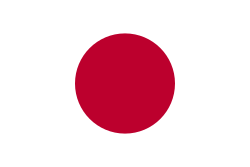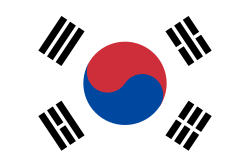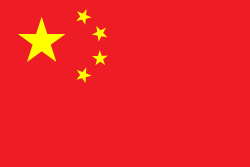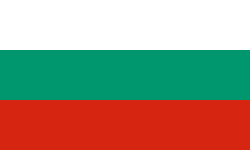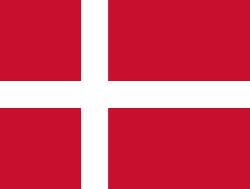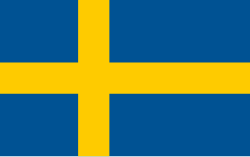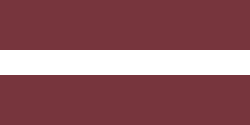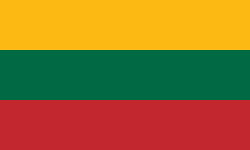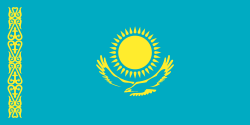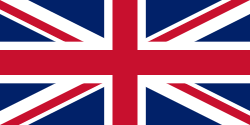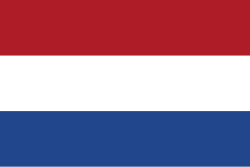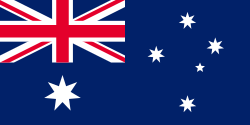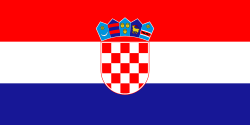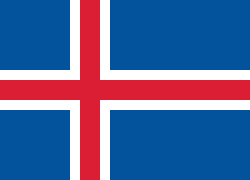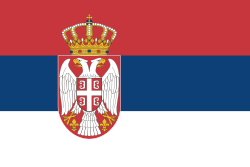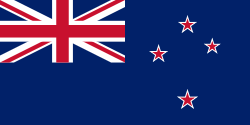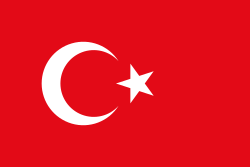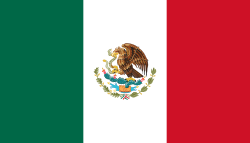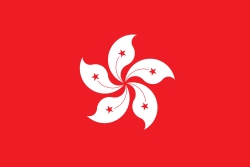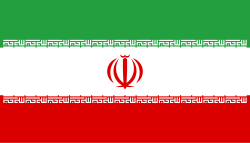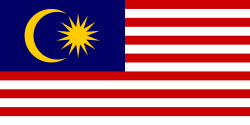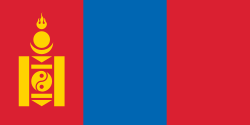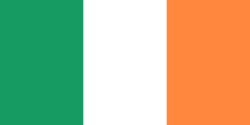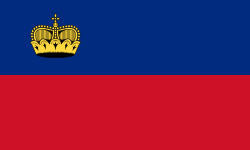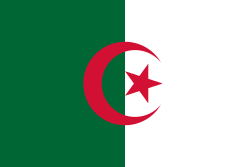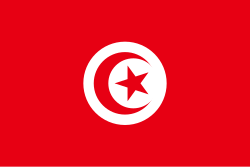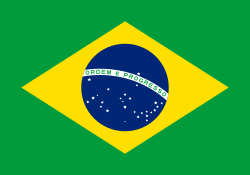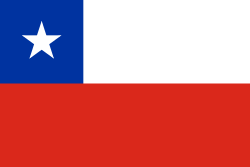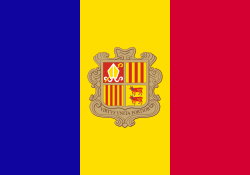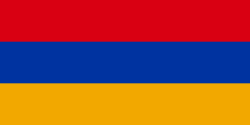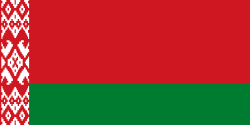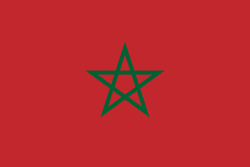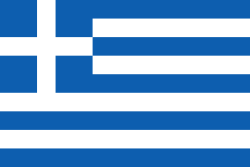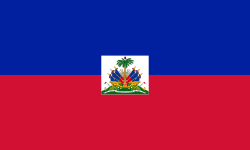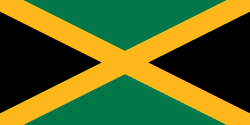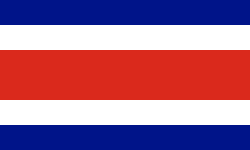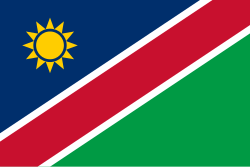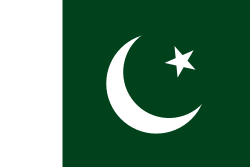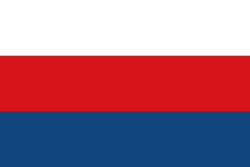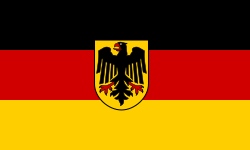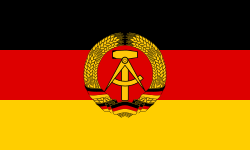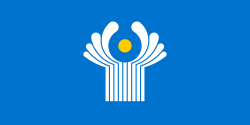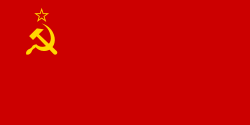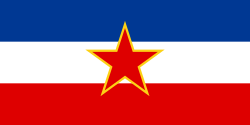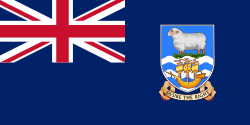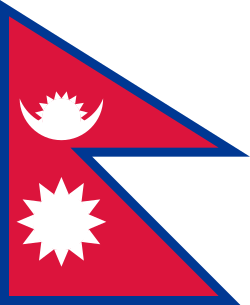Slovinská hokejová reprezentace
Slovinská hokejová reprezentace se od roku 1993 účastní Mistrovství světa v ledním hokeji. Tým má přezdívku Risi[1] a hraje v dresech s hlavou rysa ostrovida. Na světovém žebříčku IIHF figurovalo v roce 2023 na 17. místě. Historicky první utkání proti České republice sehrálo Slovinsko 26. dubna 2003 v Helsinkách v rámci MS 2003 a prohrálo 2:5. Nejlepší umístění na MS v ledním hokeji si připsali v roce 2002 a 2005, když skončili na 13.místě. Na olympiádě si nejlepší výsledek připsali v roce 2014 v Soči, když skončili ve čtvrtfinále.
| Hokej na ZOH | Místo ZOH | Umístění | Soupisky |
|---|---|---|---|
| ZOH – 1994 | |||
| ZOH – 1998 | |||
| ZOH – 2002 | |||
| ZOH – 2006 | Vyřazeno v kvalifikaci | ||
| ZOH – 2010 | Vyřazeno v kvalifikaci | ||
| ZOH – 2014 | 7. místo | Soupiska | |
| ZOH – 2018 | 9. místo | Soupiska | |
| ZOH - 2022 | vyřazeno v kvalifikaci |
Mistrovství světa
- skupina B nebo • divize D1
- skupina C
- Legenda: červené podbarvení - sestup, zelené podbarvení - postup, fialové podbarvení - reorganizace, změna skupiny či soutěže
Galerie dresů reprezentace
| ZOH 2014 | MS 2015 | ZOH 2018 |
 |  |  |
Odkazy
Reference
- ↑ Risi sklatili še orle in se vrnili v elito, Times.si 30. 4. 2016. www.times.si [online]. [cit. 2016-05-04]. Dostupné v archivu pořízeném dne 2020-07-22.
Externí odkazy
 Obrázky, zvuky či videa k tématu Slovinská hokejová reprezentace na Wikimedia Commons
Obrázky, zvuky či videa k tématu Slovinská hokejová reprezentace na Wikimedia Commons - Slovinská hokejová reprezentace na IIHF (anglicky)
- Hokejska zveza Slovenije (slovinsky)
- Knjiga pravil IIHF (slovinsky)
Média použitá na této stránce
cancel symbol dark red
Flag of Canada introduced in 1965, using Pantone colors. This design replaced the Canadian Red Ensign design.
An icon that represents a bronze medal
An icon that represents a silver medal
An icon that represents a gold medal
Finská vlajka
Vlajka České republiky. Podoba státní vlajky České republiky je definována zákonem České národní rady č. 3/1993 Sb., o státních symbolech České republiky, přijatým 17. prosince 1992 a který nabyl účinnosti 1. ledna 1993, kdy rozdělením České a Slovenské Federativní republiky vznikla samostatná Česká republika. Vlajka je popsána v § 4 takto: „Státní vlajka České republiky se skládá z horního pruhu bílého a dolního pruhu červeného, mezi něž je vsunut žerďový modrý klín do poloviny délky vlajky. Poměr šířky k její délce je 2 : 3.“
Flag of Australia, when congruence with this colour chart is required (i.e. when a "less bright" version is needed).
See Flag of Australia.svg for main file information.Při zobrazení tohoto souboru lze snadno přidat orámování
The Flag of Iceland.
- Horizontal aspect ratio: 7:1:2:1:14;
- Vertical aspect ratio: 7:1:2:1:7.
This is the national flag of Belgium, according to the Official Guide to Belgian Protocol. It has a 13:15 aspect ratio, though it is rarely seen in this ratio.
Its colours are defined as Pantone black, Pantone yellow 115, and Pantone red 032; also given as CMYK 0,0,0,100; 0,8.5,79,0; and 0,94,87,0.Georgian flag in Pantone MS.
Chinese Taipei Olympic Flag. According to the official website of Chinese Taipei Olympic Committee, Blue Sky(circle) & White Sun(triangles) above the Olympic rings is neither the National Emblem of the Republic of China, nor the Party Emblem of Kuomintang (KMT), but a design in between, where the triangles do not extend to the edge of the blue circle, as registered at International Olympic Committee in 1981 and digitally rendered in 2013. Besides, the blue outline of the five-petaled plum blossom is broader than the red one. Moreover, the CMYK code of the blue one and the Blue Sky & White Sun is "C100-M100-Y0-K0", and different from the Olympic rings (C100-M25-Y0-K0). Note that it's the only version recognized by IOC.
Used color: National flag | South African Government and Pantone Color Picker
| zelená | rendered as RGB 0 119 73 | Pantone 3415 C |
| žlutá | rendered as RGB 255 184 28 | Pantone 1235 C |
| červená | rendered as RGB 224 60 49 | Pantone 179 C |
| modrá | rendered as RGB 0 20 137 | Pantone Reflex Blue C |
| bílá | rendered as RGB 255 255 255 | |
| černá | rendered as RGB 0 0 0 |
The national flag of Kingdom of Thailand; there are total of 3 colours:
- Red represents the blood spilt to protect Thailand’s independence and often more simply described as representing the nation.
- White represents the religion of Buddhism, the predominant religion of the nation
- Blue represents the monarchy of the nation, which is recognised as the centre of Thai hearts.
Flag of Iran. The tricolor flag was introduced in 1906, but after the Islamic Revolution of 1979 the Arabic words 'Allahu akbar' ('God is great'), written in the Kufic script of the Qur'an and repeated 22 times, were added to the red and green strips where they border the white central strip and in the middle is the emblem of Iran (which is a stylized Persian alphabet of the Arabic word Allah ("God")).
The official ISIRI standard (translation at FotW) gives two slightly different methods of construction for the flag: a compass-and-straightedge construction used for File:Flag of Iran (official).svg, and a "simplified" construction sheet with rational numbers used for this file.
bendera Indonesia
Zelený pruh má znázorňovat většinové katolické obyvatelsto Irska, oranžový pruh reprezentuje protestantskou menšinu a bílý pruh uprostřed znázorňuje mír a harmonii mezi nimi.
Flag of Liechtenstein
Flag of Portugal, created by Columbano Bordalo Pinheiro (1857-1929), officially adopted by Portuguese government in June 30th 1911 (in use since about November 1910).
Při zobrazení tohoto souboru lze snadno přidat orámování
The national and official state flag of Haiti; arms obtained from File:Coat of arms of Haiti.svg. The civil flag can be found at here.
Flag of Jamaica. “The sunshine, the land is green, and the people are strong and bold” is the symbolism of the colours of the flag. GOLD represents the natural wealth and beauty of sunlight; GREEN represents hope and agricultural resources; BLACK represents the strength and creativity of the people. The original symbolism, however, was "Hardships there are, but the land is green, and the sun shineth", where BLACK represented the hardships being faced.
Flag of Namibia
Bundesdienstflagge (Flag of the federal authorities of Germany). Under German law, federal states, municipalities, institutions or private persons are not allowed to use this flag.
Flag of Serbia and Montenegro, was adopted on 27 April 1992, as flag of Federal Republic of Yugoslavia (1992-2003).
Flag of Serbia and Montenegro, was adopted on 27 April 1992, as flag of Federal Republic of Yugoslavia (1992-2003).
Flag of the Socialist Federal Republic of Yugoslavia (1946-1992).
The design (blazon) is defined in Article 4 of the Constitution for the Republic of Yugoslavia (1946). [1]
Autor: Realismadder, Licence: CC BY-SA 3.0
The home and away jerseys of the Slovenian national ice hockey team as used at the 2014 Winter Olympics in Sochi.
Autor: Realismadder, Licence: CC BY-SA 4.0
The home and away jerseys of the Slovenian national ice hockey team used from the 2015 IIHF World Championship.
Autor: Realismadder, Licence: CC BY-SA 4.0
The home and away jerseys of the Slovenia national ice hockey team used at the 2018 Winter Olympics.


